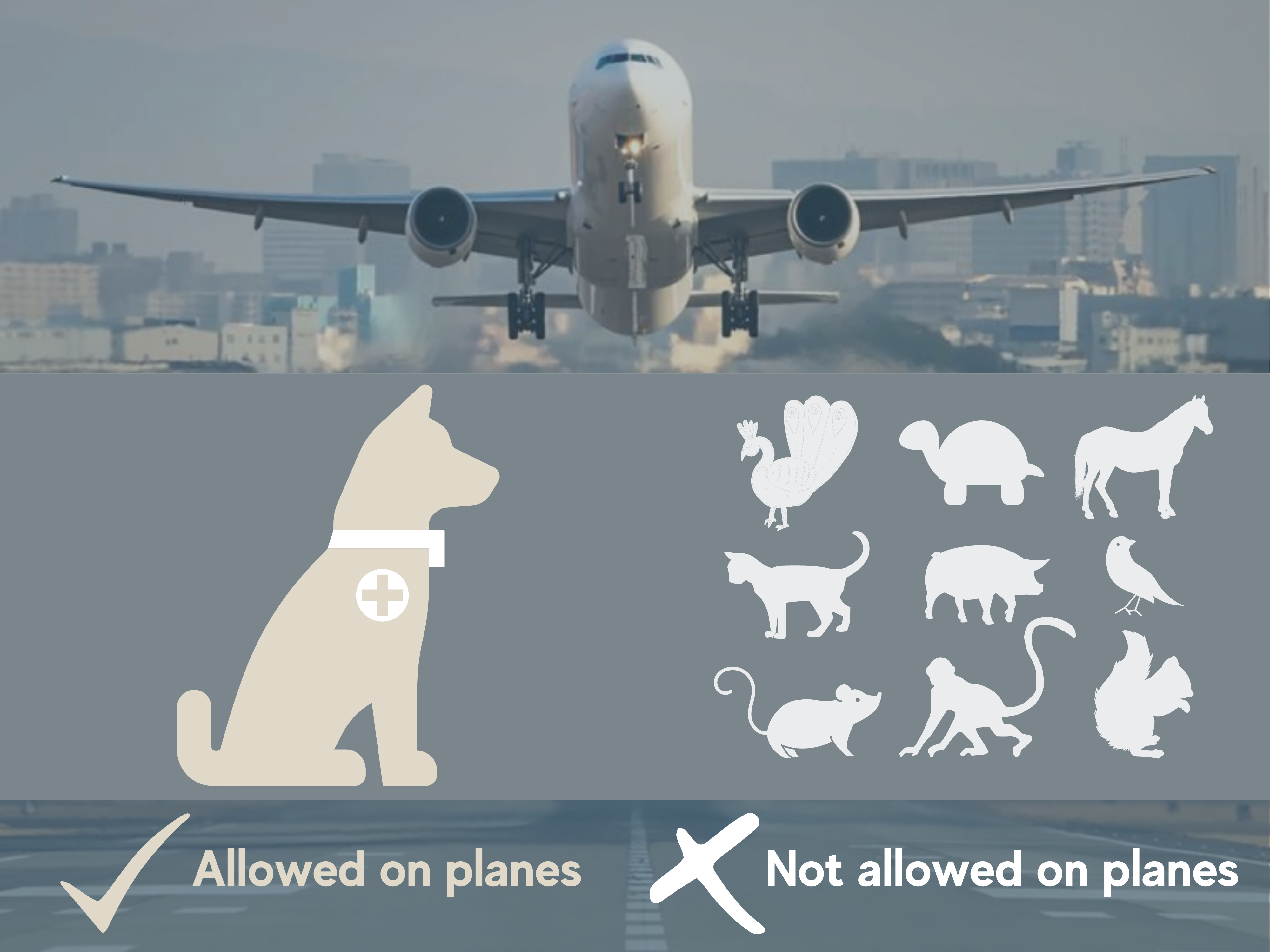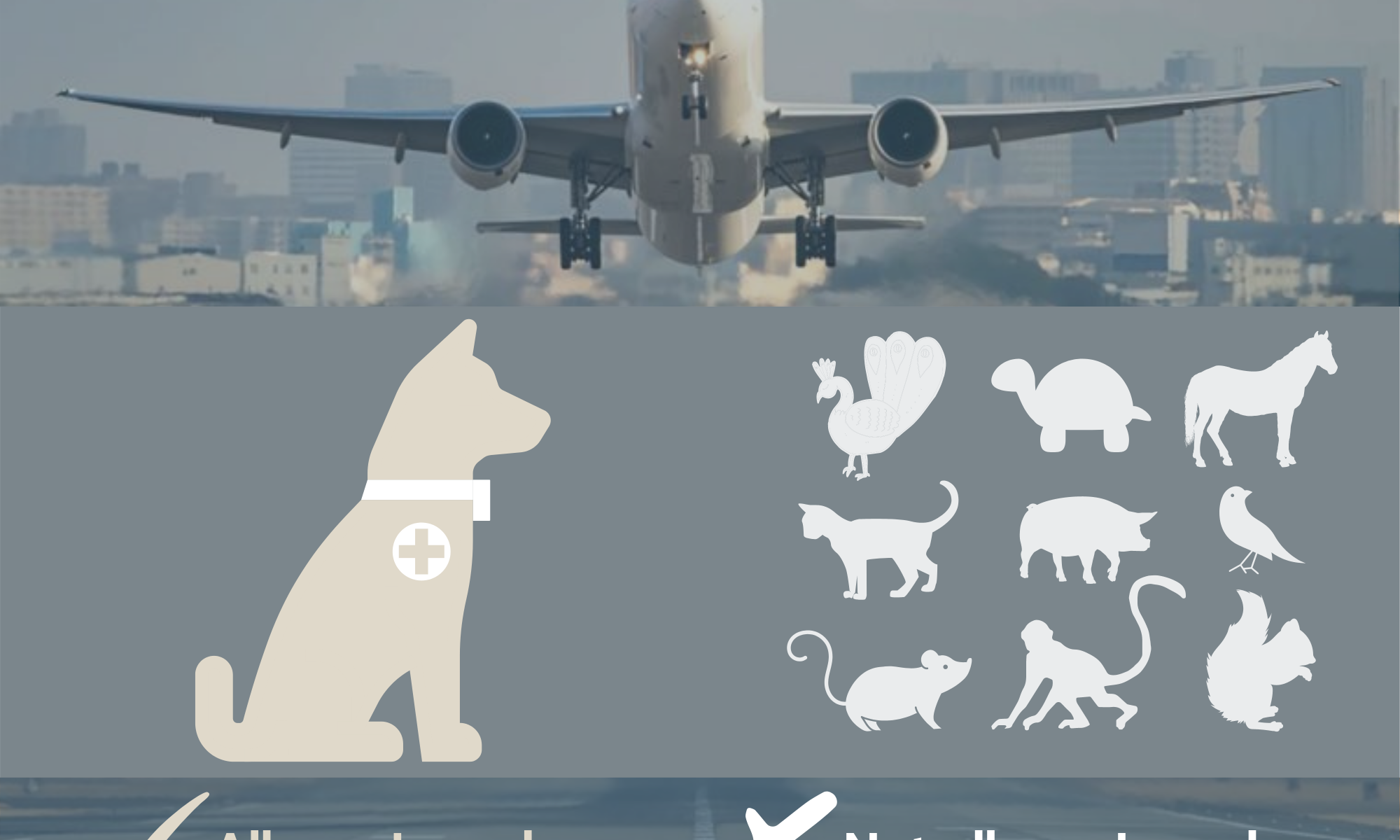
As of Dec. 2, U.S. airlines are no longer obligated to transport emotional support animals.
While the new rule limiting service animals to dogs may seem strict, the change comes in light of passengers abusing the rule allowing emotional support animals. In 2018, one person tried to bring an emotional support peacock on board. In the same year, a woman was kicked off a flight for bringing on her emotional support squirrel.
Now, the rule defines a service dog as “individually trained to do work or perform tasks for the benefit of a person with a disability.” Other animals can still be transported but will be placed in the cargo hold for a fee.
Between 2015 and 2017, Delta Air Lines said the number of service and support dogs on flights jumped 150%. The trend continued across other airlines as well.
After the news, the Association of Flight Attendants gave this statement: “Passengers claiming pets as emotional support animals (have) threatened the safety and health of passengers and crews in recent years while this practice skyrocketed. Untrained pets should never roam free in the aircraft cabin. Flight attendants have been hurt and safety has been compromised by untrained animals loose in the cabin.”
Multiple incidents involving emotional support animals have occurred, mostly because these animals aren’t required to have certain training before certification.
In 2017, an emotional support dog attacked a passenger, biting the man multiple times on his face and resulting in him being transported to the hospital.
A few months later, another emotional support dog bit a 6-year-old girl on her face during boarding.
There’s even been reports of emotional support animals attacking trained service dogs — like in 2017 when an emotional support poodle jumped from the owner’s purse onto a service dog while in the elevator.
Service animals are trained in public asset behaviors and disability-related work and tasks. Emotional support animals aren’t required to have any such training. All one really has to do is register the animal. This registration does not mean that the animal is safe to be around on a plane.
The registration doesn’t illegitimatize anyone’s need for an emotional support animal. But the registration also shouldn’t result in endangering public safety.
Kayla Mayer can be reached at maye8518@stthomas.edu.



